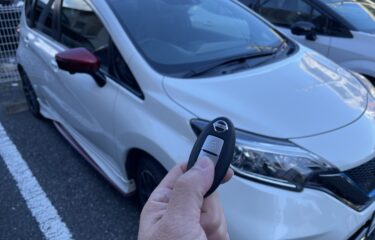- Blog
Your Complete Guide to Buying a Used Car in Australia: From Pre-Purchase Inspection to Post-Purchase Maintenance

When it comes to buying a used car in Australia, making the right choice can be both exciting and daunting. Whether you’re a first-time buyer or an experienced car owner, the process involves several important steps that require careful consideration. From choosing the right model to inspecting the vehicle and negotiating the best price, each stage plays a crucial role in ensuring you get a reliable car that meets your needs.
This comprehensive guide is designed to help you navigate the Australian used car market with confidence. We’ll cover everything you need to know, from where to find the best deals to understanding financing options and avoiding common pitfalls. By the end of this guide, you’ll be well-equipped to make an informed purchase and drive away with peace of mind, knowing you’ve made the best decision for your needs.
How to Choose the Right Used Car Model

Understanding Your Needs: What Type of Car Suits You?
Before diving into the market, it’s crucial to understand what you need from a car. Consider your daily commute, family size, and lifestyle. Do you need a fuel-efficient vehicle for long drives, or something more rugged for off-road adventures? Understanding your needs will narrow down your options and help you focus on the models that suit your lifestyle.
Popular Used Car Models in Australia
Australia has a diverse car market, and certain models stand out due to their reliability, fuel efficiency, and resale value. Some of the most popular used cars include the Toyota Corolla, Mazda 3, and Ford Ranger. These models are known for their longevity and ease of maintenance, making them excellent choices for used car buyers.
Checking the Car’s Reputation and Reliability
Once you have a shortlist of potential models, research their reputation. Look for reviews from current owners and check reliability ratings. Websites like RACQ or RedBook provide detailed insights into the pros and cons of each model, helping you avoid cars that might have long-term issues.
What to Look for When Inspecting a Used Car
Exterior Inspection: What to Check for Damage or Wear
A thorough exterior inspection can reveal a lot about a car’s history. Look for signs of rust, dents, and mismatched paint, which could indicate previous accidents. Check the tires for even wear and ensure the lights, mirrors, and windows are in good condition.
Interior Condition: How to Spot Wear and Tear
The interior of the car should reflect the vehicle’s age and mileage. Examine the seats, dashboard, and carpeting for excessive wear or damage. Make sure all electronics, including the air conditioning, radio, and power windows, are functioning correctly.
Test Driving Tips: How to Assess a Car’s Performance
A test drive is your best opportunity to assess the car’s condition. Pay attention to how the car handles, the responsiveness of the brakes, and any unusual noises from the engine or suspension. Drive on different types of roads to get a feel for the car’s overall performance.
Under the Hood: Key Engine and Mechanical Checks
Open the hood and inspect the engine for any leaks, corrosion, or worn belts and hoses. Check the oil level and color, as well as the condition of the battery. If you’re not mechanically inclined, consider bringing a friend who is, or better yet, hire a professional to do a pre-purchase inspection.
Checking the Vehicle’s History: Avoiding a Bad Purchase
A vehicle history report is essential for identifying any red flags, such as past accidents, outstanding finance, or if the car has been written off. Services like CarHistory or REVS in Australia provide comprehensive reports that can save you from a costly mistake.
How to Get a Pre-Purchase Inspection: Finding a Reliable Mechanic
A pre-purchase inspection by a qualified mechanic is one of the best investments you can make when buying a used car. A mechanic will perform a thorough check, identifying any hidden issues that could cost you down the road. Ensure the mechanic is reputable and experienced in the type of car you’re interested in.
Where to Buy a Used Car in Australia

Dealerships vs Private Sellers: Pros and Cons
Deciding whether to buy from a dealership or a private seller can impact your buying experience. Dealerships often offer warranties and financing options, but at a higher price. Private sellers may offer better deals, but the purchase is typically as-is, with no guarantees.
Online Marketplaces: Top Sites for Finding Used Cars
Online marketplaces have revolutionised the way Australians buy cars. Websites like Carsales, Gumtree, and Drive offer a wide selection of vehicles from both dealerships and private sellers. These platforms allow you to filter searches by make, model, price, and location, making it easier to find the perfect car.
Buying at an Auction: What You Need to Know
Car auctions can offer great deals, but they come with risks. It’s important to do your homework before attending an auction, understanding that the cars are often sold as-is. Inspecting the cars beforehand and setting a strict budget can help you avoid overpaying or purchasing a car with hidden issues.
Certified Pre-Owned Cars: Are They Worth It?
Certified Pre-Owned (CPO) cars are typically newer used cars that have been inspected and refurbished by the manufacturer or dealership. They often come with a warranty, making them a safer bet than other used cars. However, they are usually more expensive, so consider if the peace of mind is worth the extra cost.
Negotiating the Best Price for a Used Car

Researching Market Value: Knowing What You Should Pay
Before making an offer, research the market value of the car you’re interested in. Websites like RedBook and CarsGuide can help you determine a fair price based on the car’s make, model, year, and condition. This knowledge gives you a strong starting point for negotiations.
How to Negotiate with Sellers: Tips for Getting a Better Deal
Negotiating the price of a used car can be intimidating, but preparation is key. Start with a lower offer, knowing your maximum budget. Be polite but firm, and don’t be afraid to walk away if the seller isn’t willing to meet your price. Remember, there are always other cars available.
Understanding Additional Costs: Taxes, Registration, and More
Beyond the purchase price, consider additional costs such as stamp duty, registration, and transfer fees. These costs can add up quickly, so factor them into your budget to avoid any surprises after you’ve agreed on a price.
Financing Your Used Car Purchase
Exploring Your Financing Options: Loans, Leasing, and More
Financing a used car can be done through personal loans, car loans, or even leasing. Each option has its pros and cons, so consider your financial situation and long-term plans. For example, car loans often have lower interest rates, but personal loans offer more flexibility.
How to Get the Best Interest Rates: What to Consider
Interest rates can significantly affect the total cost of your car loan. Shop around and compare offers from different lenders. A good credit score, a larger down payment, or opting for a shorter loan term can help you secure a better rate.
The Pros and Cons of Dealer Financing
Dealer financing can be convenient, as it allows you to complete the entire transaction in one place. However, the interest rates offered by dealerships are often higher than those from banks or credit unions. Be sure to compare these options before deciding.
How to Ensure Your Used Car is Roadworthy
Understanding Roadworthy Certificates: Why They Matter
In Australia, a roadworthy certificate is required to register a car in your name. This certificate verifies that the car meets the minimum safety standards. Always ensure the car you’re buying has a valid roadworthy certificate, or factor in the cost of obtaining one yourself.
Registration Requirements in Australia: What You Need to Know
Car registration is mandatory and must be kept up to date. When buying a used car, you’ll need to transfer the registration into your name. Be aware of the costs involved and any specific requirements in your state or territory.
Safety Features to Check: Ensuring a Safe Drive
Safety should be a top priority when purchasing a car. Check that the vehicle has essential safety features like airbags, ABS brakes, and electronic stability control. Newer used cars may also have advanced safety technologies such as lane departure warnings or automatic emergency braking.
Understanding Warranties and Insurance for Used Cars
What Types of Warranties Are Available for Used Cars?
Used cars may come with a dealer warranty, manufacturer warranty, or no warranty at all. Dealer warranties typically cover major mechanical issues for a limited time, while manufacturer warranties may still be valid on newer used cars. Extended warranties can also be purchased for additional peace of mind.
How to Choose the Right Car Insurance in Australia
Car insurance is required by law in Australia, and there are several types to consider: Compulsory Third Party (CTP), Third Party Property, and Comprehensive insurance. Comprehensive insurance offers the most coverage, protecting against damage to your car and others, but comes at a higher cost.
The Importance of Gap Insurance: Should You Get It?
Gap insurance covers the difference between the car’s value and the amount still owed on your loan if the car is written off. This can be particularly important if you’re financing a significant portion of the car’s value, as it protects you from financial loss.
How to Avoid Common Scams When Buying a Used Car
Recognizing Common Scams: Red Flags to Watch For
The used car market can be rife with scams. Be wary of deals that seem too good to be true, sellers who refuse to meet in person, or requests for payment before you’ve seen the car. Always trust your instincts and do thorough research.
How to Verify the Seller’s Legitimacy
To avoid falling victim to a scam, verify the seller’s identity and ensure they have the legal right to sell the car. Check the vehicle’s registration papers and make sure the VIN matches. If possible, conduct the transaction in a safe, public place.
What to Do If You’ve Been Scammed: Legal Steps to Take
If you suspect you’ve been scammed, report the incident to the police and your local consumer protection agency. Gather all documentation and communications with the seller, as these will be crucial in any investigation or legal action.
What to Do After Purchasing a Used Car
How to Transfer Ownership and Register Your Vehicle
After buying a used car, one of your first tasks is transferring ownership and registration. This process varies by state, but typically involves submitting the necessary paperwork to your local transport authority. Don’t forget to update your insurance as well.
Essential Maintenance Tasks for Your Used Car
Keeping your used car in good condition requires regular maintenance. Start by changing the oil and checking the brakes, tires, and fluids. Follow the manufacturer’s maintenance schedule, and address any issues promptly to avoid costly repairs down the line.
How to Keep Your Used Car Running Smoothly: Long-Term Tips
To ensure your used car remains reliable, adopt good driving habits and keep up with routine maintenance. Regularly wash and wax the car to protect the paint, and consider using fuel additives or engine cleaners to keep the engine running efficiently. Storing the car in a garage or under a cover can also help extend its lifespan.
Frequently Asked Questions About Buying a Used Car in Australia
How Much Should I Spend on a Used Car?
Your budget for a used car should be based on your financial situation. A common rule of thumb is to spend no more than 15% of your annual income on a car. Don’t forget to account for additional costs like insurance, registration, and maintenance when determining your budget.
Is It Better to Buy from a Dealer or a Private Seller?
Both options have their advantages. Buying from a dealer offers more protection and possibly a warranty, but private sellers often have lower prices. Consider your comfort level with the process and whether you value the added security a dealership can provide.
What Are the Most Reliable Used Cars in Australia?
Some of the most reliable used cars in Australia include models from Toyota, Nissan, Mazda, and Honda. These brands are known for their durability and lower maintenance costs, making them popular choices among used car buyers.
How Can I Increase the Resale Value of My Used Car?
Maintaining your car in excellent condition is key to preserving its resale value. Keep detailed records of all maintenance and repairs, and address any cosmetic or mechanical issues promptly. Regularly cleaning the car and protecting it from harsh weather can also help retain its value over time.
Conclusion
In conclusion, buying a used car in Australia can be a rewarding experience when you approach the process with knowledge and confidence. By following the steps outlined in this guide—from pre-purchase inspection to post-purchase maintenance—you’ll be well-equipped to make an informed decision and enjoy a smooth, worry-free car ownership experience. Whether you’re looking to rent, lease, subscribe, or buy, taking the time to research, inspect, and negotiate will ensure you drive away with a reliable vehicle that meets your needs.
Popular

- Japanese Used Car
- Blog
The Pitfalls of Purchasing Imported Japanese Used Cars
27 February 2024

- Car Functions
- Blog
Smart Key Solutions: Battery Replacement and Troubleshooting
23 March 2024

- Blog
How to Avoid Mistakes When Buying a Used Car: Legal Warranties and Cooling-Off Periods Explained
14 December 2024

